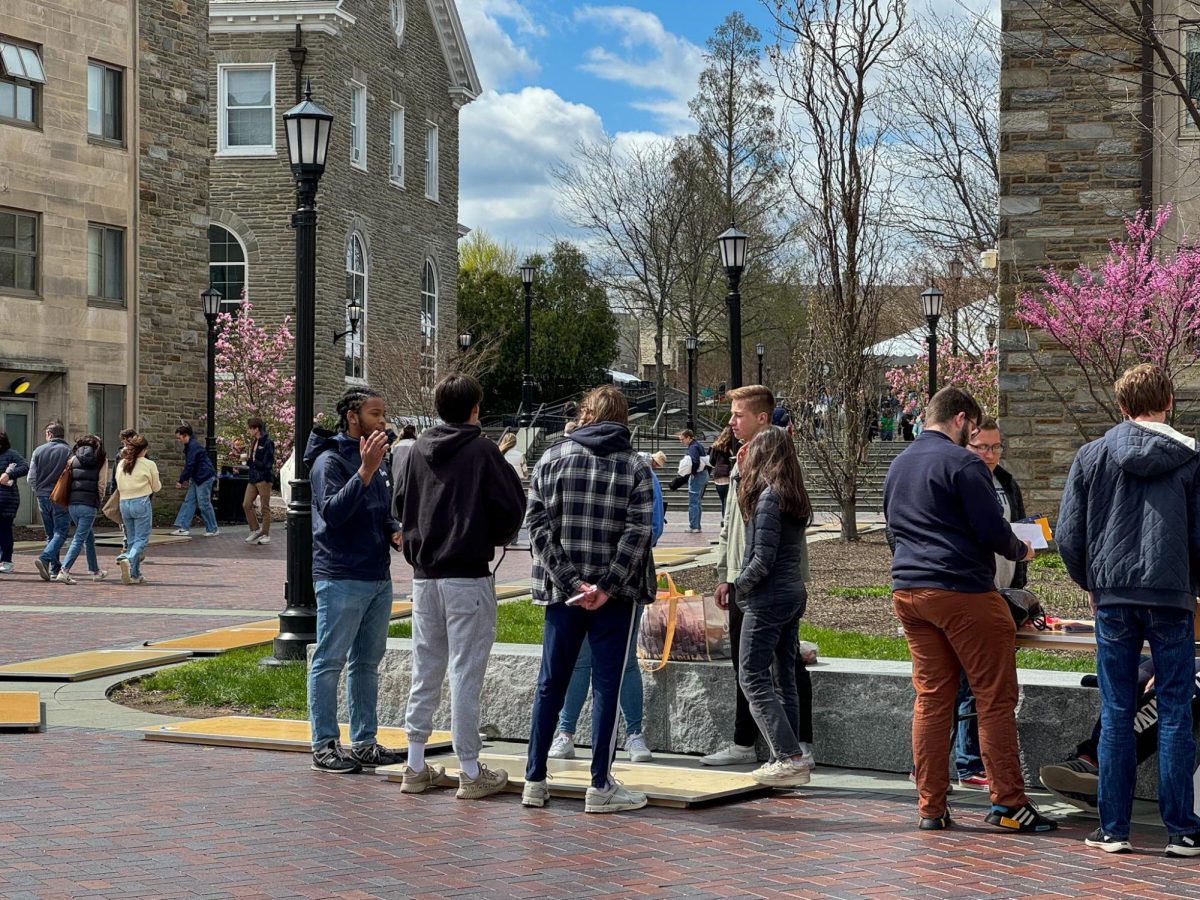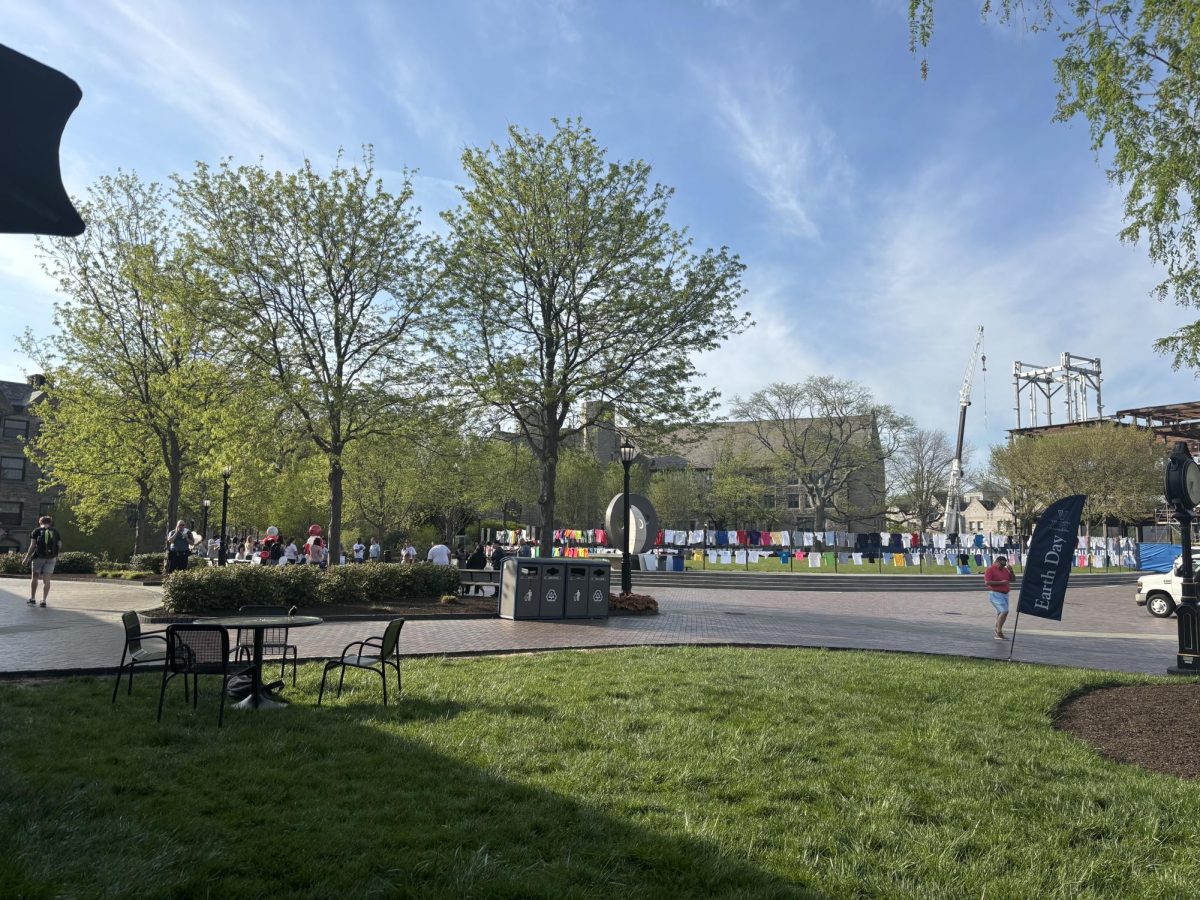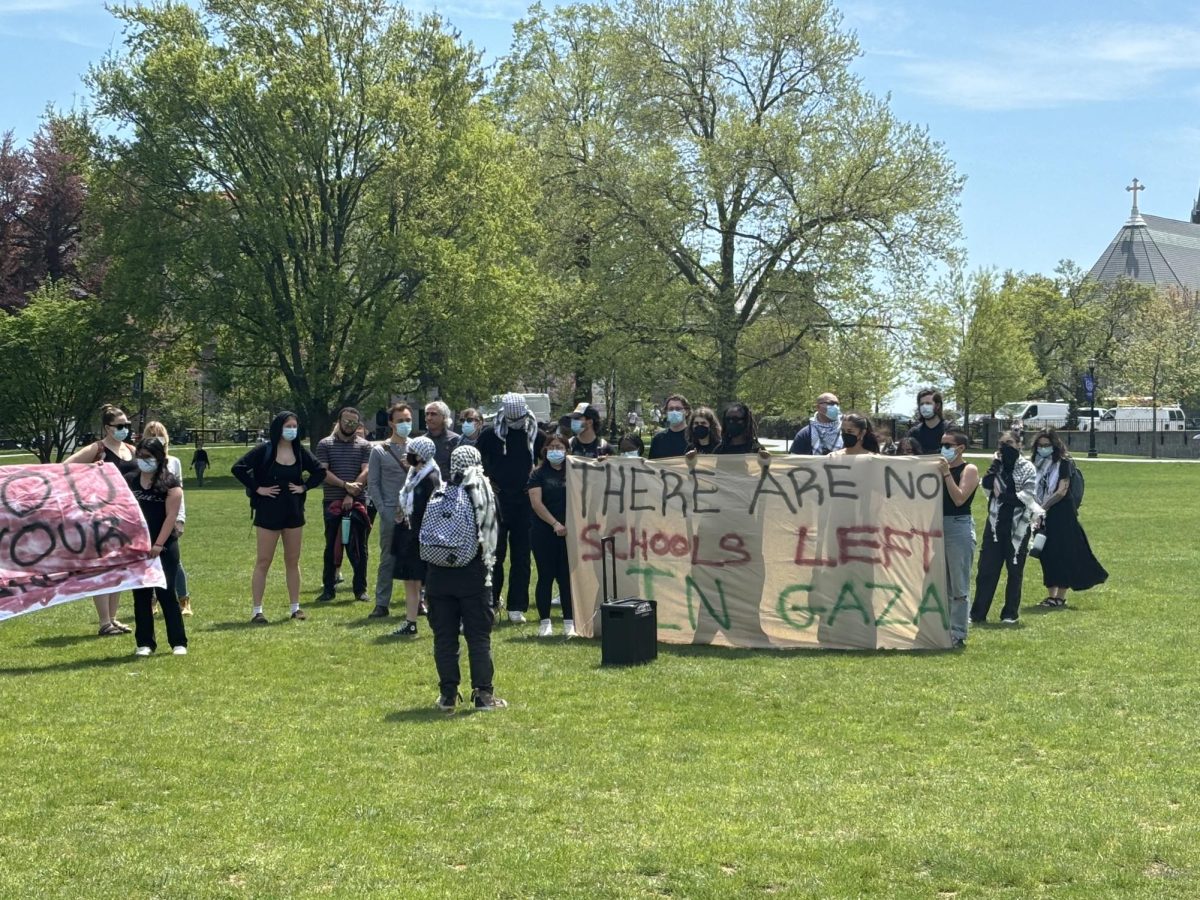On Tuesday, Nov. 19, a panel event on the 2024 U.S. presidential election took place in the Speaker’s Corner of the Falvey Library. This event is a part of a greater Villanova-wide push for reflection on the recent election, as well as a prospective outlook on the changes to come.
Beginning the event, Sara Marx, the subject librarian for the social sciences, thanked the audience for coming.
“So this campus, and the world, have been a little saturated with post-election breakdown, so I am personally very honored that you all decided to come to this panel today,” Marx said.
Marx also thanked the co-sponsors for the event, including the Falvey Library, Center for Peace and Justice Education, Department of Political Science, Department of Communication and Let’s Vote ‘Nova.
Marx introduced the three Villanova faculty members serving on the panel: Billie Murray, PhD; Matthew Kerbel, PhD; and Camille Burge-Hicks, PhD. She then noted the election-focused topics they would each be tackling individually.
Murray began the discussion, speaking on the hope found in social movements. Murray admitted that she had anticipated there to be a different election result when she had first prepared for this discussion.
“So, as some of you might know, this panel was officially slated for before the election, so any preparations or ideas that I had kind of got scrapped after Nov. 5,” Murray said.
However, Murray explained that for young voters and students unhappy with the election, there is still hope. This hope is found in the social movements that are the real changemakers.
To illustrate this idea, Murray reflected on a story from the 2008 election, avidly supporting the Obama campaign. When she asked why her friends were not as enthusiastic about the election as she was, they said, “Politicians don’t make change, we do.”
She explained that politicians are important, but that we cannot wait for politicians to do things or to make change.
“Democracy lives in the everyday,” Murray said.
She also illustrated the impact of language on social movements and further change.
“When we change the way we talk about something, we change the way we think about something,” she said.
Kerbel, Professor Emeritus in the Department of Political Science, spoke next on questions pertaining to what really happened in the recent election.
“Why is it that presidential elections over the last eight years have been the most important of our lives?” Kerbel said.
Kerbel illustrated the many trends and shifts that have led to this increase in polarization. These include a generational shift towards a majority-minority, the rising young electorate and the receding older electorate. Also, younger voters tend to have different attitudes in several areas. Kerbel explained that these trends have spurred a reactionary movement to “roll back the clock,” a movement known as “MAGA.”
This rise of the reactionary movement has led to public opinion being bimodally distributed and now, according toKerbel, in both 2020 and 2024 elections, the question was “What island got to govern both islands?”
Kerbel also discussed metrics prior to the 2024 elections and the reasoning behind why they failed.
Burge-Hicks, Chair and Associate Professor in the Department of Political Science, spoke next, discussing group identities, emotions and misinformation. She illustrated that the problem is not that people have wrong beliefs, it is that people “hold incorrect beliefs confidently.”
Additionally, with the rise of social media, people have been able to share misinformation online, increasing its impact. Burge-Hicks further explained that misinformation has serious implications on politics, and gave examples of incorrect information, such as crowd size at the Trump inauguration and incorrect beliefs about Critical Race Theory that spread via the internet.
She described that individuals must pay more attention to misinformation and put the work in to understand what is taking up our attention and how we are made to feel about certain things.
After the three faculty members spoke, there was time for questions, allowing the audience to interact and develop a greater understanding of the election.







